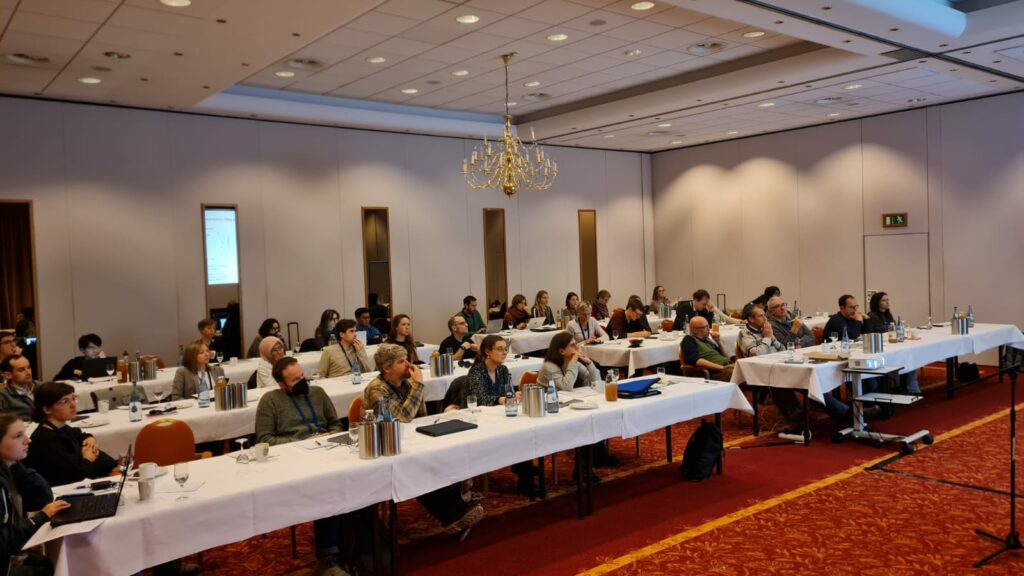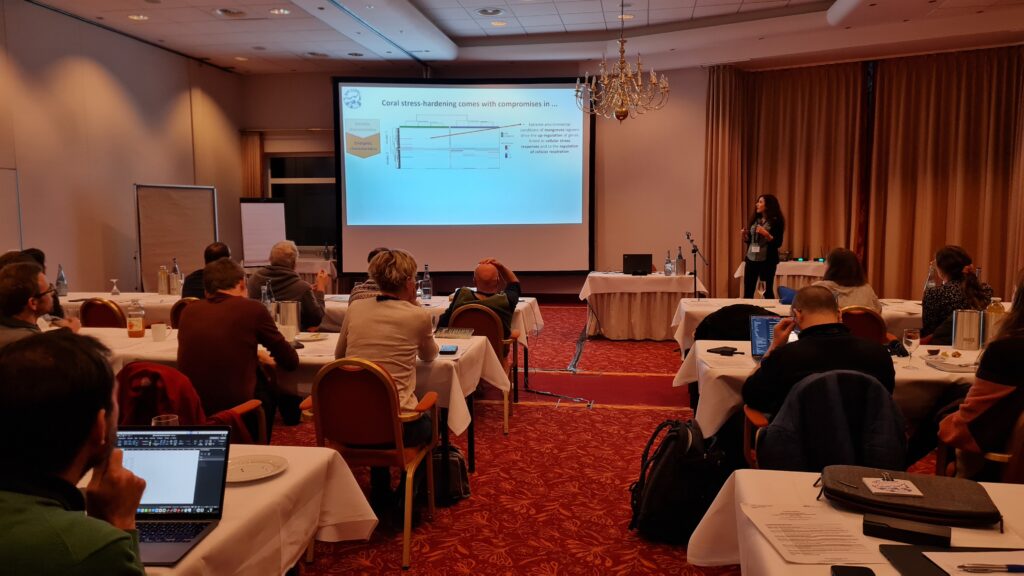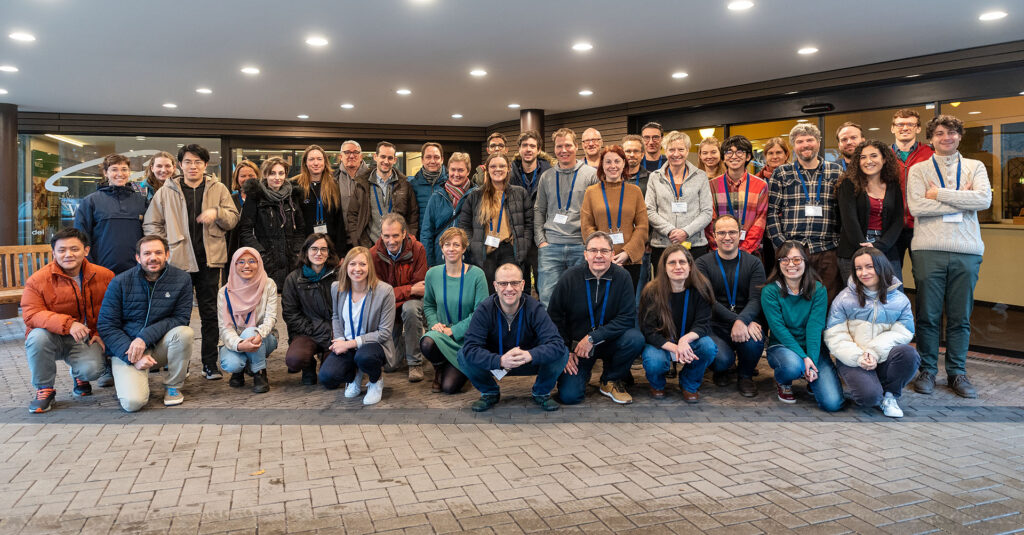Researchers from the DFG Priority Programme “Tropical Climate Variability & Coral Reefs” (SPP 2299) met at the University of Bremen during the last week of November for their first status seminar.

The tropics are the heat engine of our planet. As it warms, increasing occurrences of heatwaves, droughts, floods and cyclones affect the lives of billions of people and destructively impact tropical ecosystems. We are starting to see extremes never previously observed. Tropical coral reefs are one of the most vulnerable ecosystems to climate change, as they are sensitive to heat stress that causes coral bleaching and mortality. If coral reefs are lost, there will be large follow-on effects with major losses of marine species, and food sources for large populations, while also impacting the stability of tropical coasts. The first status seminar is being held just before the end of a devastating 2023, characterized by record global temperatures, regional weather extremes, an unusually early onset of coral bleaching in the Atlantic and an evolving El Niño in the tropical Pacific.
During the status meeting, there were several featured keynote speakers including;
- Liam Lachs (Newcastle University) on ‘Heat tolerance in corals: historic shifts, unexpected patterns, and assisted evolution’,
- Christian Voolstra (University of Konstanz) on the ‘Global search for universal signatures of coral resilience and the role of climate and environment’,
- Sebastian Ferse (ZMT Bremen) on ‘Fisheries impacts on reefs: from fish communities to coral physiology’.
Another exciting feature of the status meeting was the international researchers who were invited to give talks;
- Federica Scucchia (University of Florida) on ‘Evaluating the role of stress-hardened corals living in extreme environments for coral management strategies’.
The Priority Programme aims to improve our understanding of tropical climate variability and its impacts on coral reef ecosystems in a warming world. This improved understanding comes from before the start of instrumental climate observations and coral reef monitoring, extending our current knowledge. Some species of coral grow annual bands in their skeletons like tree rings, and these continuously record changes in their environment, including changes in temperature during their lifetime. Corals themselves can provide us with answers from the past on how to best protect them, as well as the tropical communities that depend on these ecosystems and suffer most from climate extremes.

The programme brings together over 40 researchers from 15 institutions across Germany (10 universities, 3 Helmholtz Centres, 1 Max Planck Institute, 1 Leibniz Centre) using novel geochemical and isotopic tools applied to coral skeletons, along with advanced statistical methods and earth system modelling to not only understand past and future tropical climate but also coral responses to past and future heat stress. The unique interdisciplinary nature of the participants and the ability to focus on different scales in time and space will help broaden our perspectives and better prepare us for the warmer future we are entering into.
The Priority Programme (SPP 2299) has been running since last year, with the first phase of the programme coordinated by Dr. Thomas Felis from MARUM – Center for Marine Environmental Sciences at the University of Bremen. The second phase of the programme will be coordinated by Miriam Pfeiffer from Kiel University (CAU). The Status Seminar will conclude with a workshop for female early career researchers within the programme.

